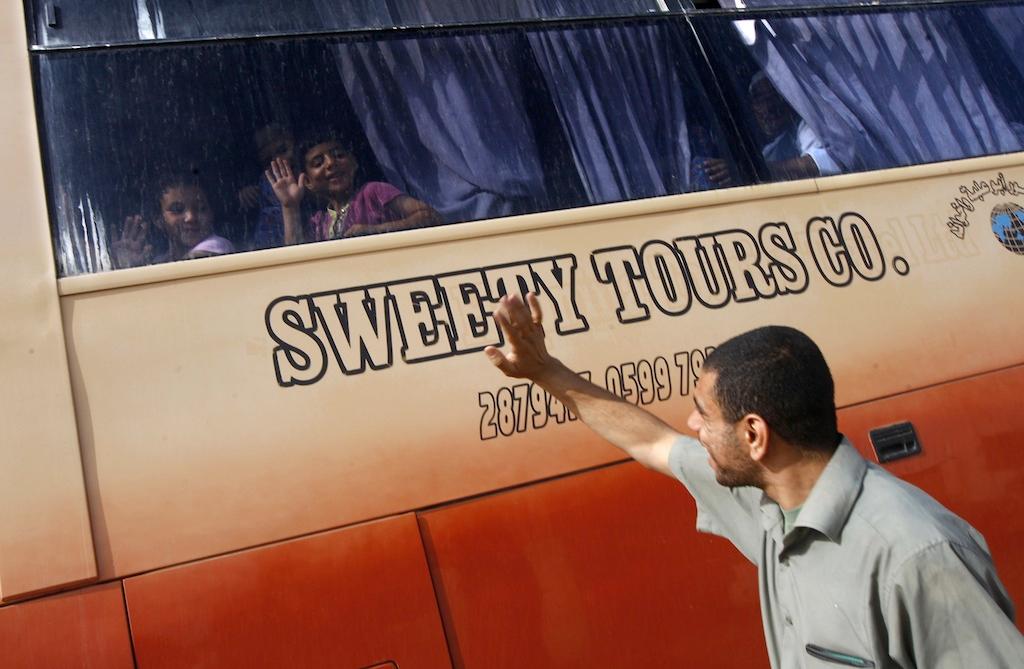Egypt opens Rafah border crossing, ending Gaza blockade
Palestinians sit in a bus as they wait to cross into Egypt through the Rafah border crossing in the southern Gaza Strip on May 28, 2011.
Egypt permanently opened its Rafah border crossing Saturday, ending a four-year blockade of Gaza.
The reopening of the border will bring economic relief to the 1.5 million people who live in the Gaza Strip and have been unable to travel abroad.
Egypt will now allow all women and children to pass through freely. Men between the ages of 18 and 40 will require a permit.
The move is also a boost for Hamas, the militant group that has controlled Gaza since 2007.
"The closure did not affect only the travel of passengers or the flowing of goods. Our brains and our thoughts were under blockade," Khaled Halaweh, a 28-year-old student going to Egypt to get a master's degree told the Associated Press. He said he has not left Gaza for seven years.
Israel, who has opposed opening the border, has expressed fears that Hamas will now be able to easily move weapons and militants into the Palestinian territories.
The Israeli army told the Associated Press that militants from Gaza fired a mortar shell into southern Israel overnight.
Israel's opposition Kadima party blamed the government of Prime Minister Benjamin Netanyahu for failing to prevent the move by Egypt, Haaretz reports.
The United States and Israel earlier pressured Egypt to monitor the border closely to ensure militants do not pass through.
"We obviously support efforts to meet the humanitarian needs of the Palestinian people in Gaza, but those efforts should also ensure that the transfer of weapons or other material or financial support for terrorism is blocked," State Department spokesman Mark Toner said, as reported by Haaretz.
Egypt has insisted that it will conduct thorough searches of everyone passing through, and that only those carrying Israeli-issued Palestinian identity cards will be allowed to leave Gaza, BBC reports.
Israel and Egypt imposed a blockade on Gaza after Hamas took control in June 2007. The blockade has been attacked by human rights advocates as being unjust to the people living inside the Gaza Strip who have faced difficulty accessing jobs, health care and the outside world.
The United Nations had repeatedly called the blockade, which was meant to weaken Hamas, illegal and demanded it be lifted.
The opening of the Rafah border, the BBC states, is also a symbolic move that illustrates how the new leadership in Egypt is influencing regional politics.
The closing of the border has long been unpopular among Egyptians, and Egypt's caretaker government has recently distanced itself from Israel and shown greater support for the Palestinians.
Egypt's newly appointed foreign minister, Nabil el-Araby, has indicated that he viewed the blockade as inhumane and shameful, the New York Times reports.
Israel has accused Egypt's new government of practically halting efforts to prevent weapons smuggling into Gaza.
We want to hear your feedback so we can keep improving our website, theworld.org. Please fill out this quick survey and let us know your thoughts (your answers will be anonymous). Thanks for your time!
